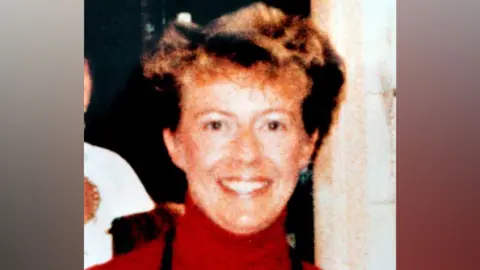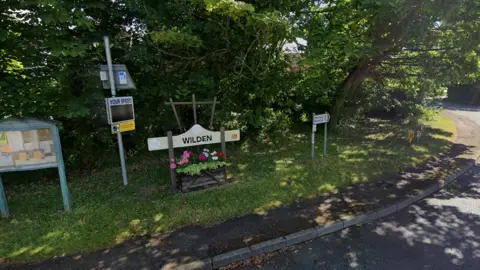BBC News, Bedfordshire
 PA Media
PA MediaA man who was twice found guilty of a woman’s murder has had his conviction quashed for a second time at the Court of Appeal.
Justin Plummer was jailed in 1998 after a jury found he had fatally attacked Janice Cartwright-Gilbert at the building site of her future home near Wilden, Bedfordshire, the previous year.
Ms Cartwright-Gilbert, 38, was stabbed with a knife and scissors before her body was set alight in a caravan next to the building site.
Mr Plummer, who was 24 at the time of her death, had his first murder conviction quashed in 2021, but was convicted again following a retrial at Aylesbury Crown Court in 2023 and sentenced to life with a minimum term of 16 years.
Mr Plummer’s barristers challenged his second conviction at the Court of Appeal earlier this month, claiming the trial judge was wrong to allow hearsay evidence to be presented to the jury from a police informant, Christopher Dunne.
Dunne had shared a cell with Mr Plummer before his first conviction and claimed he had confessed to the murder, but the “cell confession” was not used in the first trial, and Dunne died in 1999.
In a ruling on Wednesday, three senior judges quashed Mr Plummer’s second conviction, stating that Dunne’s claims “should have been withdrawn from the jury”.
 Google
GoogleLord Justice Edis, sitting with Mrs Justice McGowan and Judge Nigel Lickley KC, said: “Dunne was a criminal and paid police informant who was in the habit of passing information to the police about other criminals for his own benefit.”
He continued: “The circumstances of the suggested confession to murder and the reliability of the informant are such as to raise concerns about it.”
He added: “He gave no detail of the murder which could support its reliability.”
Mr Plummer had his first murder conviction quashed after it was referred to the Court of Appeal by the Criminal Cases Review Commission due to concerns over expert evidence.
Mr Plummer had admitted to burglary, but denied murder and that he had ever given a confession.
Account discrepancies
At a hearing on 15 July, Katy Thorne KC, for Mr Plummer, said that Dunne’s evidence “should never have been admitted” and that the trial judge “failed to properly consider” the evidence had “inherent potential unreliability”.
She also said records showed a payment had been made to Dunne at the time he provided evidence to the police, but “there has never been any explanation given by anyone” for what it was for.
Dunne did not ask to speak to police about the alleged confession until August 1997, and gave a differing account that December.
Lord Justice Edis said there were “discrepancies and matters that cannot in fact be correct” in Dunne’s accounts, which also did not provide “any account of the killing”.
He continued the retrial “should have been stopped” after the jury had heard the evidence, and the judge’s “failure to do that clearly therefore renders the conviction unsafe”.
The Crown Prosecution Service, which opposed the appeal, said: “Having carefully considered the judgement, it is not possible for the prosecution to seek a further retrial as the remaining evidence, without the cell confession, would not provide a realistic prospect of conviction.”




